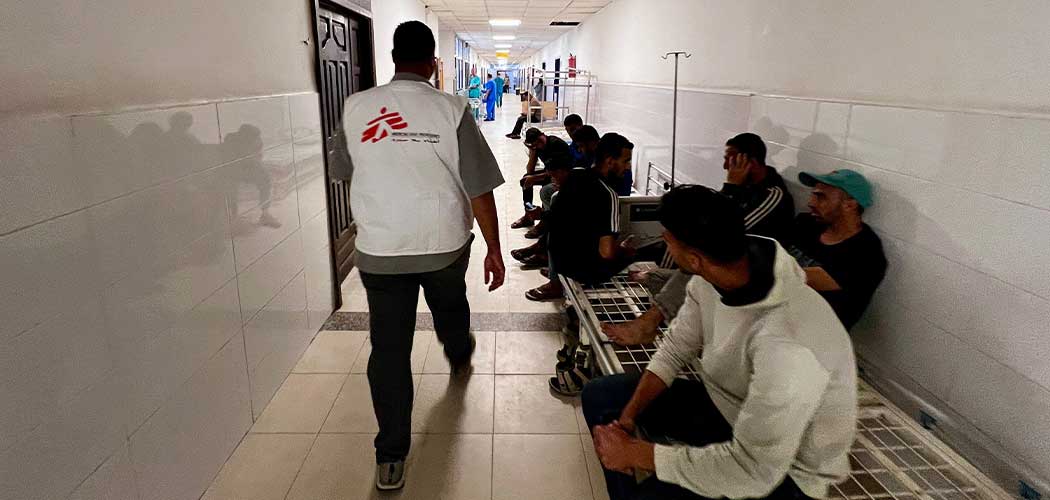Independent medical humanitarian organisation Médecins Sans Frontières/Doctors Without Borders (MSF) has called on Israeli authorities to allow unimpeded access to patients in Southern Gaza to avoid more deaths.
“Our teams have received patients who have been critically injured while trying to get food, as a result of the shootings which have taken place around the Gaza Humanitarian Foundation food distribution centres. This is in addition to the people who have been wounded in the ongoing bombardment of the Gaza Strip. Hospitals are overflowing with patients,” said Jose Mas, head of MSF emergency programmes.
Healthcare is under attack everywhere in Gaza, which is not only carried out through military action. In southern Gaza, displacement orders and movement restrictions imposed by Israeli authorities are pushing Nasser Hospital on the brink of becoming non-functional, MSF has warned.
Nasser Hospital is a large referral hospital with many specialist wards not found anywhere else in the south of Gaza including operating theatres, an oxygen plant, ventilators, a blood bank, and incubators. Its location on the frontline hampers access for both staff and patients.
Ordering hospitals to refuse new patients and making it harder for people to reach places of care has been a pattern aimed at bringing down the hospitals by the Israeli forces through this war, reports MSF.
Displacement orders have led to entire hospitals having to shut down at short notice. Harassment and confusing orders issued by Israeli authorities were making it increasingly difficult to provide lifesaving care.
Nasser Hospital is the only last remaining vital lifeline for the people in need, and its full functionality must be restored immediately and preserved, said Jose Mas.
“On 3 June, our teams were told that any movement to Nasser Hospital would require authorisation, and this would have to be requested with at least 24 hours’ notice. This meant that medical staff due on the day shift could not reach the hospital. The staff from the previous night had to continue working. They ended up staying on shift for 48 consecutive hours.”
Ambulances that were able to carry patients to the hospital did so at great risk, as there was a danger they would be shot at because they lacked authorisation. Limitations imposed on the importation of medical supplies has forced doctors to ration pain relief medicine.
Reducing access to this hospital and blocking the referral of patients who need specialist, emergency care, stops people from receiving treatment that may safe their life, said Mas.
“Putting Nasser Hospital out of service would equate to a death sentence for the most severe patients among wounded adults and children, critically ill patients, and women in need of emergency obstetric care.”
In the past few months, MSF medical teams in Nasser Hospital have provided care to over 500 patients in the maternity ward, including women requiring surgical care, as well as to more than 400 newborn babies and paediatric patients. The hospital is full of patients with burns and severe trauma.
“This is happening while people are exhausted, their lives shattered by 20 months of extremely violent war and a suffocating siege where even the distribution of minimal amounts of aid results in devastating massacres. In this context, any remaining medical facility is of critical importance and must be protected.”
MSF has called on Israeli authorities protect Nasser Hospital and guarantee full and unimpeded access to patients and medical staff alike, to avoid more deaths.
For more information or to donate, visit the MSF website








